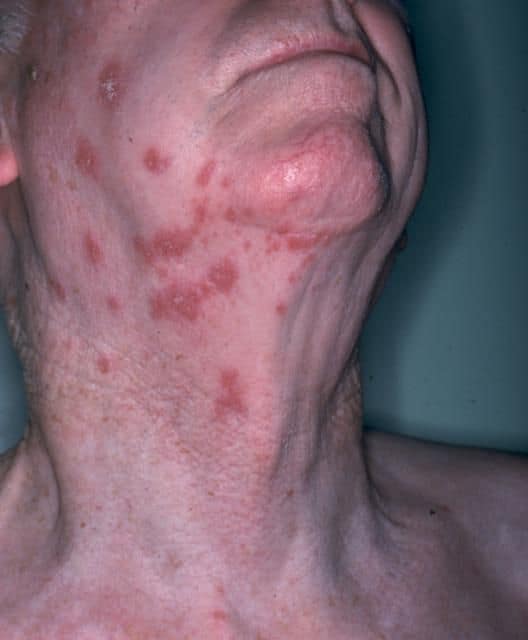Roseola Rash in Adults: A Comprehensive Guide
Hey there, wonderful readers! If you thought roseola was just a childhood concern, think again! While it’s common among the little ones, adults are no strangers to this viral encounter. In this handy guide, we’ll dive into the world of roseola rash in adults, equipping you with all the knowledge you need to identify, manage, and treat this pesky virus. So, let’s get to it and unpack the mysteries of roseola in grown-ups!
What is Roseola?
Roseola, also known as sixth disease, is often associated with infants and toddlers. It’s caused by human herpesvirus 6 (HHV-6) and occasionally by human herpesvirus 7 (HHV-7). The hallmark of roseola is usually a sudden, high fever followed by a distinctive rash as the fever subsides. But here’s the twist – adults can get it too! Although less common, when adults do catch it, the ride can be a bit different.
Symptoms of Roseola in Adults
Let’s shine a spotlight on the symptoms. For adults, the signs can be slightly more undercover than in kids. Here’s what to look out for:
- Fever: Perhaps a fever that feels like it popped out of nowhere. It might not be as high as in children but can still be a sign.
- Rash: A rash that spreads over your body might appear as your fever starts to cool down. It can be subtle or more pronounced, pink, and with small flat or raised spots.
- Other Symptoms: You might experience a sore throat, a runny nose, or swollen lymph glands. Occasionally, fatigue and adults feeling just plain ‘off’ can indicate roseola.
However, since adults often have a stronger immune system due to previous exposure, many don’t show symptoms at all, which means it can pass by unnoticed. Neat, right?
Is Roseola Contagious for Adults?
Yes, it’s a social butterfly of viruses. It’s typically spread through respiratory secretions or saliva (sharing utensils, coughs, sneezes – the works). In adults, it can be a bit confusing because you might not know you have it, making unintentional sharing with others a bit easier.
Diagnosing Roseola in Adults
When an adult marches into a healthcare provider’s scene with a roseola suspicion, doctors might initially be surprised. But once the initial shock wears off, they’ll likely examine you, asking about your fever and looking for the famous rash. They might perform blood tests to check your immune system’s response to HHV-6 or HHV-7 or to rule out other causes — because, let’s be honest, rashes are like snowflakes, no two are exactly alike.
Treatments and Home Remedies
Although roseola typically resolves on its own, feeling better faster is always a plus. Treatment in adults focuses on symptom relief:
- Rest: A good old-fashioned dose of rest can do wonders. It’s time to chill, recharge, and let your immune system do its thing.
- Hydration: Keep fluids flowing! Water, herbal teas, or electrolyte solutions can help you stay hydrated and soothe a sore throat.
- Medication: Over-the-counter fever reducers like acetaminophen or ibuprofen can help bring down the heat and ease any aches.
Home remedies can be superstars, too! A cool compress can be a relief if the rash is making you feel itchy or uncomfortable, and gargling warm salt water might help with that sore throat.
In this joyous journey through the ins and outs of roseola in adults, we’ve covered the basics — from symptoms and contagiousness to diagnosis, treatment, and some pretty handy home remedies. Remember, even though roseola is predominantly a children’s affair, us grown-ups aren’t immune to its whimsies. If you think you’re hosting a roseola party of your own, it’s always best to consult your healthcare provider. Stay tuned for more nifty tips and in-depth info on handling roseola as a full-grown member of the playground!
So, whether you’re reading this because you’re feeling under the weather or you’re just super into learning about adult rashes (no judgment, we’re all friends here), keep smiling, stay informed, and take care of your health — you deserve it!

5 Things Parents Should Know About Roseola in Adults
As a parent, you’re naturally a pro at handling the sniffles and sneezes that come with raising kids. But what happens when an adult in the family comes down with something like roseola? Here are five key points to keep you prepared:
- Understand That Adults Can Be Asymptomatic: Unlike kiddos, adults with roseola may not show any symptoms. It’s important to remember that an adult can still carry the virus and pass it on to children and other family members without realizing.
- Recognize the Symptoms: If symptoms do appear, they could include fever, rash, and cold-like symptoms. Keeping an eye out for these can help you take action quickly.
- Prevent the Spread: Good hygiene practices such as regular hand washing, avoiding sharing utensils and cups, and covering coughs and sneezes are essential to prevent the spread of roseola to children and other adults.
- Be Prepared for Easy Mistakes: Since roseola symptoms in adults can resemble other illnesses, it’s easy to misdiagnose at home. When in doubt, it’s always best to consult a healthcare provider for a proper diagnosis.
- Supportive Care is Key: There’s no specific treatment for roseola, but supportive care is crucial. This includes rest, hydration, and fever management. Adults need downtime too, so don’t ignore the need for a little TLC.
Understanding that roseola isn’t just a childhood ailment is important for keeping everyone in your family healthy. Be vigilant about the signs and practice good hygiene to keep your home roseola-free. And always remember, your healthcare provider is your best ally in health, so reach out when you’re in doubt. Now that you’re armed with this knowledge, you’re all set to tackle roseola like the super parent you are!
Wrap Up on Roseola in Adults
Roseola may be more common in kids, but adults aren’t off the hook. The good news is, with a bit of awareness and care, managing roseola in adults is totally doable. Keep these tips and tricks in your back pocket, and you can handle this little viral hiccup like a champ. Knowledge is power, dear reader, and you’ve got plenty of it now. Stay healthy, be happy, and let’s keep those rashes at bay!
We hope you found this guide informative and that it’s answered some of your burning questions about roseola in adults. Remember, your health and well-being deserve your attention, so don’t hesitate to take action if you suspect roseola is playing hide and seek with you. Keep learning, stay vigilant, and here’s to your health!
See more great Things to Do with Kids in New Zealand here. For more information see here
Disclaimer
The articles available via our website provide general information only and we strongly urge readers to exercise caution and conduct their own thorough research and fact-checking. The information presented should not be taken as absolute truth, and, to the maximum extent permitted by law, we will not be held liable for any inaccuracies or errors in the content. It is essential for individuals to independently verify and validate the information before making any decisions or taking any actions based on the articles.




